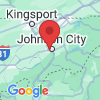The Shield Pest Journal
Check out Shield Pest Appalachia’s most recent blog posts for helpful pest prevention and control suggestions. Our blog covers from detecting common pests to creating tailored solutions in the Tennessee and Virginia areas. Do you have a pest-related question? Contact us today for experienced guidance and solutions targeted to your specific needs.

Back-to-School, Pest-Free Rule: Securing Your Home for the New School Year
Routine Revisions for Pest Prevention
• Declutter and Deep Clean: Simplify cleaning and reduce pest hiding spots by decluttering your home, especially areas like mudrooms or entryways that become busy as school routines resume. Deep clean kitchens and dining areas to eliminate crumbs and residue that attract pests.
• Seal Entry Points: Inspect your home for any cracks or gaps in windows, doors, and foundation. Small openings can be gateways for pests seeking shelter and food. Use weather stripping and caulk to seal them up.
Focused Areas for a Pest-Free Home
• Storage Solutions: As you switch out summer gear for school supplies, ensure that storage areas are clean and well-organized. Use sealed containers to prevent pests from accessing seasonal items like camping gear or summer clothing.
• Trash Management: Regularly dispose of garbage and clean the bins to avoid attracting pests with food remnants. Consider a bin with a tight-fitting lid to keep pests out.
Engage Professional Pest Control Services
• Regular Inspections: Utilize professional pest control services like Shield Pest Appalachia to conduct regular inspections and treatments. These experts can offer tailored solutions and preventative strategies that are crucial during the transition seasons when pest activity can spike.
• Education on Prevention: Shield Pest Appalachia provides not only remediation but also education on preventative practices that can be maintained year-round.
Essential Oils and Natural Repellents
As families prepare for the back-to-school season, maintaining a pest-free home is crucial, especially in areas frequented by children. One effective and child-friendly method is the use of essential oils and natural repellents. These substances offer a safe alternative to chemical pesticides, reducing the risk of exposure to potentially harmful substances.
Peppermint Oil: Known for its strong scent, peppermint oil is highly effective at repelling spiders, ants, and even mice. Placing a few drops near entry points or in areas where pests are frequent can help keep these unwanted guests at bay.
Lavender: Not only does lavender have a calming effect on humans, but its floral scent also repels moths, fleas, and flies. Use lavender sachets in wardrobes, drawers, or pillowcases to deter pests naturally.
Tea Tree Oil: This powerful oil can be used to combat a variety of pests, including mosquitoes, spiders, and ants. Mixing a few drops with water and spraying it around windowsills, doorways, and other pest entry points can create a natural barrier against pests.
Pet Care and Pest Control
As the school year begins and household routines change, it’s vital to manage pet care effectively to avoid attracting pests into your home. Pets can unintentionally bring in fleas, ticks, and other pests, which can quickly become a nuisance if not properly managed. Here are some practical tips to ensure your pets do not contribute to pest problems:
Regular Pet Grooming: Consistent grooming is crucial to prevent fleas and ticks from settling on your pet’s coat. Regular baths and combing can help catch these pests before they have a chance to infest your home.
Flea and Tick Prevention: Apply or administer flea and tick prevention treatments as recommended by your vet. These products are designed to repel pests and prevent them from making your pet their host, which in turn keeps your home pest-free.
Clean Feeding Areas: Ensure that pet feeding areas are kept clean and free of open food containers. Store pet food in sealed containers and promptly clean up after your pet eats. This prevents attracting rodents and insects that are drawn to pet food.
DIY Pest Inspection Checklist
As families gear up for the back-to-school season, it’s the perfect time to perform a basic pest inspection to ensure your home remains a safe and pest-free environment. Here’s a simple step-by-step guide to help parents identify potential pest problems and understand when it might be time to call in professional help.
1. Check for Entry Points: Examine doors, windows, and exterior walls for any cracks or gaps. Even small openings can be an invitation for pests. Seal any openings you find with caulk or weather stripping to deter entry.
2. Inspect Moisture Areas: Pests thrive in damp areas. Check under sinks, in basements, and around water heaters for any signs of moisture or leaks. Fix leaks promptly and consider using a dehumidifier in particularly damp areas of your home.
3. Look for Signs of Nesting: Look in less trafficked areas of your home, such as attics, garages, and basements, for any signs of nesting materials like shredded paper, fabric, or dried plant matter. These can indicate the presence of rodents or other pests.
4. Identify Pest Droppings: Different pests leave different kinds of droppings. Small black droppings could be from cockroaches, while larger, rice-shaped pellets may be from mice or rats. Finding any kind of droppings is a sure sign of pest activity.
5. Examine Wood Surfaces: Check wooden structures like floorboards, walls, and furniture for any holes, gnaw marks, or sagging, which can indicate a termite or carpenter ant infestation. Tapping on wood that sounds hollow can be a tell-tale sign of termites.
6. Assess the Yard: Don’t forget the outside. Check your garden and yard for ant hills, wasp nests, or damaged plants, which might suggest pest issues that could easily spread to your home.
7. Monitor for Noises and Smells: Sometimes pests can be heard before they are seen. Listen for scratching, rustling, or scurrying sounds in the walls, especially at night. Unusual smells, like musty or sweet odors, can also indicate pest presence.
When to Call Professionals:
If you find evidence of an infestation, or if your DIY efforts do not resolve minor issues, it’s time to call in the professionals. Pest control experts can provide a more thorough inspection and offer effective solutions tailored to your specific situation.
For more information on making your home pest-free this school year or to schedule a service, visit Shield Pest Appalachia’s website. Let’s start the school year right with a clean, secure, and pest-free home!
Office:
1300 University Pkwy, Johnson City, TN 37604, United States
Call
423-379-2775
Copyright 2024. All Right Reserved.

